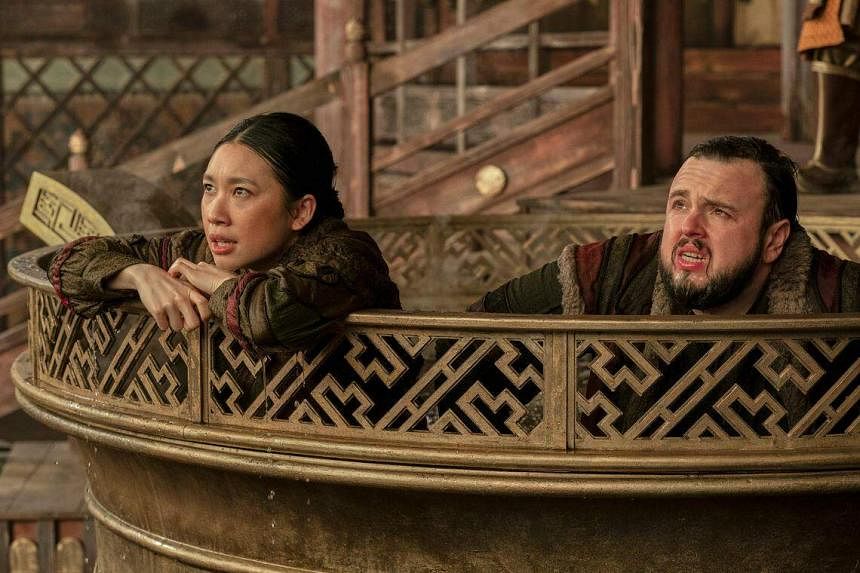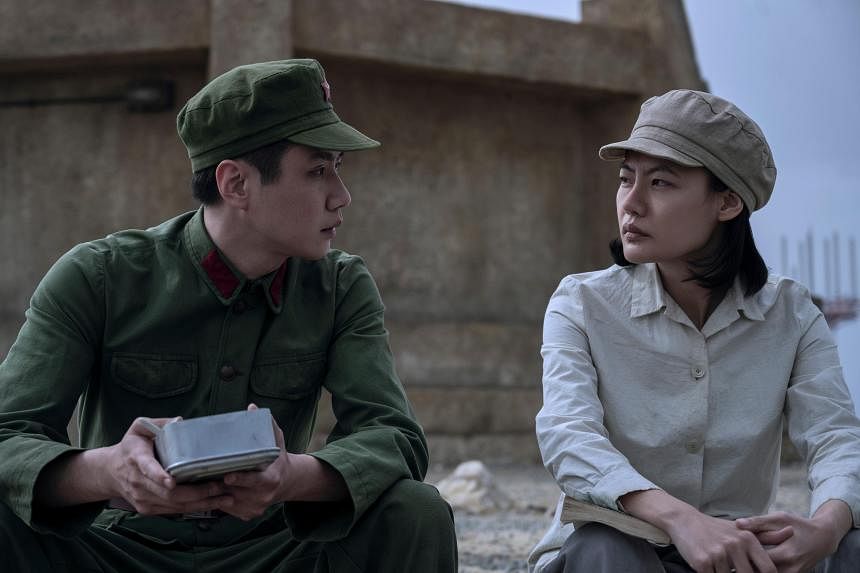3 Body Problem
Netflix
3 stars
Is Mexican actress Eiza Gonzalez too hot to be the head of a tech company?
Why did 3 Body Problem creators David Benioff, D.B. Weiss and Alexander Woo whitewash away Chinese characters while retaining the book’s premise of a Chinese woman (Zine Tseng) triggering a global catastrophe?
Will Benioff and Weiss stab fans in the back the same way they did when they wrapped up the HBO fantasy series Game Of Thrones (2011 to 2019)?
Heated arguments surrounded this Netflix adaptation of Chinese author Liu Cixin’s science-fiction trilogy Remembrance Of Earth’s Past when its eight episodes dropped on March 21, and angry debates are still raging across sites such as IMDb, Rotten Tomatoes and Reddit.
After binging on 3 Body Problem in one night, this reviewer – who regards Liu’s books as holy scripture – gives the series a qualified thumbs-up.
The show’s supposed flaws – such as the race-changing; making the book’s disconnected characters into a friend group nicknamed the Oxford Five (played by Gonzalez, Jess Hong, John Bradley, Jovan Adepo and Alex Sharp); and the omission of the science that gives Liu’s stories a realistic edge – have been carried out with the understandable intention of making it more palatable to those who know nothing of the books.
As for Gonzalez’s hotness being a problem – it all depends on the amount of time one thinks a scientist-corporate leader can believably spend on her lips, eyelashes and hair before heading to work.
For those wondering what the hype is all about, here are three reasons why 3 Body Problem is worth a look.
1. Ironing out the books’ issues
Liu’s trilogy, for all its glories, contains issues common to the hard science-fiction genre. It puts plot ahead of realistic character development. When written by men, with Liu being no exception, the genre leans too much on the idea of the lone male hero, supported by women characters who range from underwritten to laughably awful.
Christopher Nolan’s space-travel movie Interstellar (2014), for example, despite a reliance on realistic astrophysics, features a stereotypical space cowboy as the hero.
This adaptation neatly sidesteps the white male hero problem by making the saviours a multi-ethnic group known as the Oxford Five. It depicts, in realistic fashion, the fact that modern problems are likely to be fixed by a diverse team, rather than by one grizzled space detective or a troubled American dad-astronaut.
2. Time compression done right

Remembrance Of Earth’s Past opens in the 1960s, in a China in the grip of the Cultural Revolution, and ends 18 million years later, in another part of the galaxy.
Netflix has not yet said if there will be a second season, but the way the first season has distilled Books 1 and 2 of the trilogy suggests that the story could get wrapped up in one, or at most two, more seasons.
Book fans will be dismayed by the omission of world-building textual material. The first season omits much of the spine-chilling backstory that gives Liu’s story its sense of cosmic dread. The terrifying central axiom of his “cosmic sociology” – which states that the universe is a dark, predator-filled forest – would have been hard to translate onto the screen without thick chunks of dialogue.
3. It gets Mandarin right – mostly

Major segments of 3 Body Problem’s first few episodes are set in 1960s China, so the show’s credibility would have been in the gutter if the Mandarin was sub-par.
Thankfully, the Netflix series takes linguistic accuracy more seriously than the average Hollywood production. No character butchers the language in the style of American actor Bradley Cooper in the infamous Chinese restaurant scene from science-fiction thriller Limitless (2011).
While the spoken Mandarin in the series is generally correct, the speech patterns indicate that an improbably large number of characters hail from southern China and belong to the same social strata. Perhaps the actors shared the same dialect coach?
Compare that homogeneity with the slew of English accents used in Game Of Thrones, which serve to separate Northerners from the others, or the peasants from the aristocrats.
It would have been cool to hear a Red Guard student exhort the crowd in a harsh Dongbei accent, or have someone go “aiyah” – that would be a neat Easter egg telling Mandarin-speaking viewers that their opinions matter.


